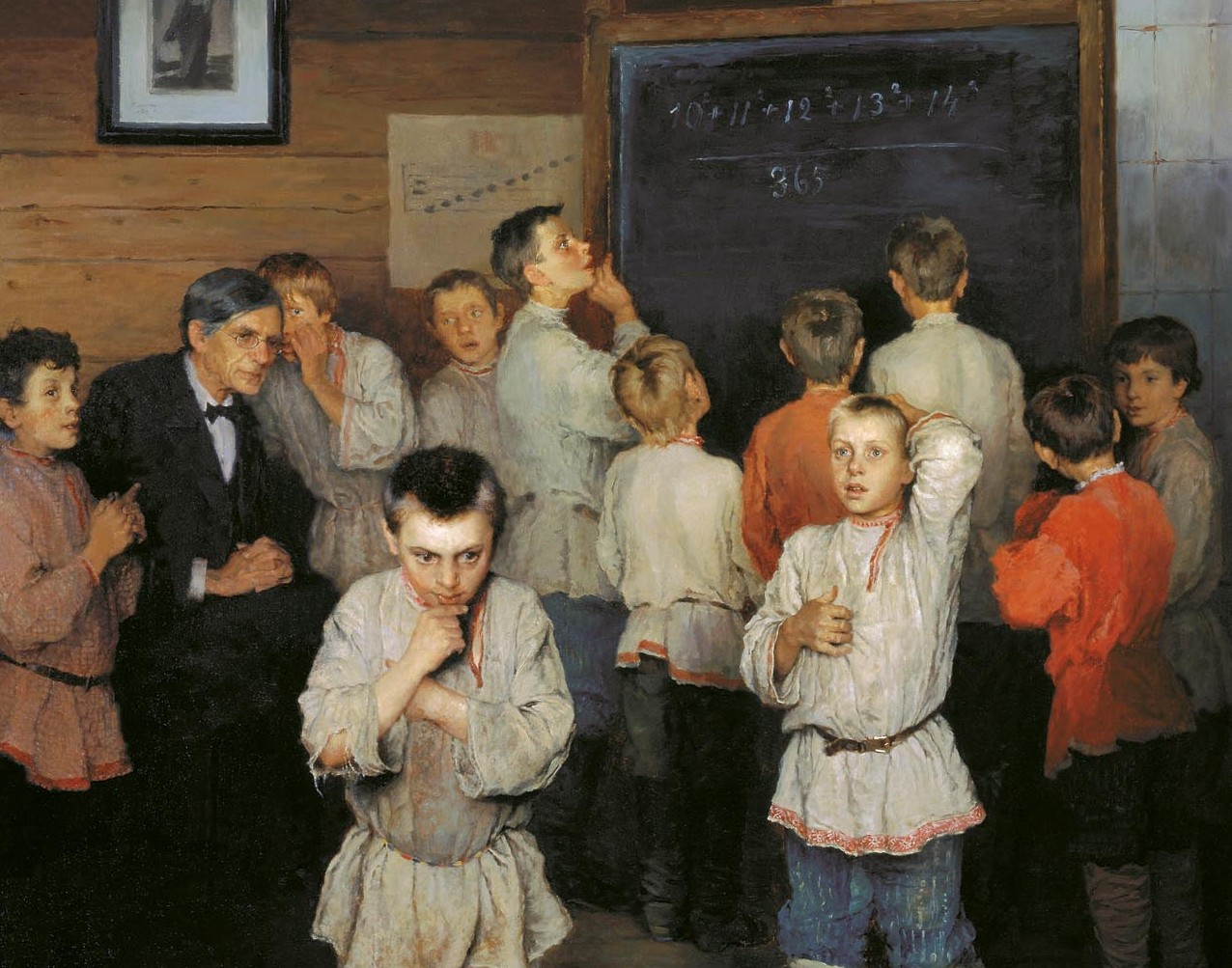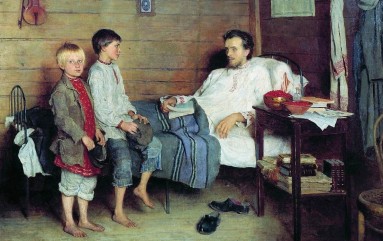What it's like when your coworkers outgrow you every year
It’s been five years since I was walking hand-in-hand with a tiny four-year-old with autism who I thought was non-verbal until I heard him singing Common lyrics to himself. I was only in his classroom for a few weeks, and I haven’t seen him since, and I don’t have any drawings from him.
Everyday, I wear a three-year-old Silly Band that a third grader gave me. He moved away and I haven’t seen him since, and I guess he’s going into middle school now. I remember that he liked to wear my sunglasses.
The memories I have of working with children exist in my head like stolen home movies. They are a similar combination of mundane and significant moments, some grainy and some vividly clear, and there are years and years of them. There are milestones and breakthroughs and injuries and lost teeth and disgusting bathroom things. Learning how to ride a bike, overcoming stage fright, frustrating homework. Lots of dancing, almost as much crying. All with other people’s kids.
Kids are people, which is something that sometimes gets lost in conversations about them. Working with children isn’t some magical Full House party, and I’m not about to say “I don’t teach them, they teach me,” because that tired inversion relies on the idea that it is, in fact, an inversion--as if we should all be so heartwarmed by the idea that an adult could learn from a young person. Working with kids just means working with people, but it’s safe to say that working with very young people is different than working with older people. Specifically, they haven’t been alive as long.
I’ve written before that adults often talk about young people as if they live in a separate Kid Universe, which was the theme of a series of McDonalds commercials in the 90s. Their behavior is mystified and their passions and talents ignored or presented as novelties. Adults exploit their needs in an attempt to tap into a vague collective emotion that children evoke, despite the nationwide, systemic policy failure to actually support, feed, provide medical care for, and educate them all. Conversations about children have always felt to me like conversations about a race of small aliens adults are both fond and afraid of. People often tell me they can’t imagine working with kids. But when you compare them to adults, who are more likely to perpetrate evil and less likely to be hilarious, I’ve never understood the aversion to the newer people.
In fact, what goes wrong between adults and children is usually related to the former’s bewilderment at the latter’s inability to conform to their expectations. While the family unit is probably ground zero for this tension, it exists between children and adults in the workplace too. A young person’s growth and development is molded--gently or aggressively--by the adults around them, including their caretakers and educators. I’ve been both. It was my first experiences working with children with disabilities that gave me the sinister feeling that the adult project is often about imposition rather than understanding. Their unrelenting expectations of children--regarding their learning style and ability, their behavior, their gender expression, their social skill--is more hammering than molding.
Children have to be given permission to change locations, consume or refuse food, stand up, sit down, wear certain clothes, speak. Once, a fifth grader asked me if he could get out of his chair to clean out the paper scraps in the bottom of his bookbag. I was struck by the idea of needing permission to do such a thing. When I told him he could, he got up, struck a pose, twirled his backpack over his head, and started dancing down the aisle of the classroom. When he got to the garbage can he shook out his bag, mugging like he was on a runway, flung the backpack on top of his head, and skipped all the way back to his seat. It was unremarkable to both him and the rest of the students--none of them looked up, and he went right back to work.
How many times, before this, had I emptied the annoying tiny garbage out of the bottom of my bag without realizing what a joyous experience it could be? How could the mundane be so instantaneously and completely transformed into the fun? I had almost certainly witnessed thousands of similar moments of uninhibited expression without ever noticing, without actually seeing the person in front of me. The boy was a smart-alec who frequently challenged me in class. We had a history--me saying Teacher Things like “Do I look like I think this is funny?” and him, grin plastered across his face, insisting “I’m not laughing!” Had I decided to wield my arbitrary authority to hold him in his seat that day, I never would have learned how I love the way he throws stuff away.
Acknowledging the vast diversity amongst all humans of all ages, the adult Garbage Can Dancer is a rare sight. The drive for spontaneous play gets dampened in the process of growing up, conditioned away in the same spaces where it flourishes whenever allowed. These moments of unrestricted expression pop up throughout the school day in between the walking in straight lines, sitting still, and taking tests, like weeds from the sidewalk gaps. Despite pervasive structural restrictions on fun, children are poised for it constantly, ready to seize a single minute of garbage-can-induced freedom. You see this in the hallways of schools as kids run (and are told to stop running), dance, and meander to their destinations, stopping to look at every bulletin-board display. Sitting at cafeteria tables, my students invent games with the quarters in their pockets. The quarters game, which they named Quarters, was so fun I tried to teach it to my friends at the bar, but it didn’t catch on, maybe because it wasn’t our only option for entertainment.
Because kids live in the same world as adults, their level of relative autonomy is restricted by broader power systems. Under-resourced schools populated by children of color, with their barred windows and metal detectors and police officers, more closely resemble prisons than they do their wealthy, well-staffed counterparts. Adults’ control over children manifests in different forms. While the “overscheduled kid”--with their nonstop lessons and camps and recitals and games--has little in common with child whose pre-school, after-school, childcare programs, or neighborhood public schools have lost their funding, they are both subjects of adult domination. The incentives to quantify progress guides both institutional and cultural policies for understanding kids, from standardized test scores to extracurricular activities and talents. My student’s frequent class disruption was quite quantifiable; his garbage can dance was beyond units of measurement. It is the profoundly unquantifiable nature of kids that informs that collective fondness and anxiety around them, but their space to exist unmeasured and unjudged is rapidly vanishing. If free, unsupervised play has declined dramatically over the past several decades across the United States, as psychologist Peter Gray demonstrates, then the relationship between children and the adults around them is even more significant. Relationships between kids and adults change, of course, across time and space. The images of children working in factories--disturbingly and relatively recent, for the scope of American history--serves as a reminder that idyllic ideas about childhood are recently constructed, subject to change when values do.
In the dedication of his book The Little Prince, Antoine de Saint-Exupery writes that all adults were children once, but few of them remember. I had forgotten how to make games out of quarters, but my students reminded me. Saint-Exupery portrayed the gulf between older and younger people as one of misunderstanding and indifference. Maybe the condescending “I don't teach kids, they teach me” adage bothers me so much because it’s close--there is an inversion at work, but at its best, it’s the potential to bridge the gulf. It’s a categorical rejection of condescension. The responsibility of the adult who works with the child is to enforce and impart discipline. The child's ongoing responsibility while growing up is to learn control--over their bodies, their behavior, their minds, their emotions. While this relationship can be incredibly oppressive, it can also be emancipatory. The adult's proximity to the kid--the kid who has not yet internalized the social, emotional, and intellectual restraints of adulthood--allows the adult the chance to remember what they have forgotten. Not all adults who work with kids take this opportunity. Some remain like the villains of children’s books, trapped in their restraints and unable and unwilling to understand the children in front of them. But other adults are able to remember. These are the adults whose memories consist of not just the linear milestones of their children but their own momentous escapes from adulthood. Their home movies are filled with games, dances, jokes, conversations, and Quarters tournaments in which they participated not as adults but as a players.
A coworker of mine recently had to say goodbye to her students. She is moving forward from her time at the school, where she’s been long enough to see Kindergarteners graduate to middle school. On the last day, one of her kids--a notoriously disruptive second grader--approached her. The boy gave her a watch, and said that this way, she would always know what time it was. She always asked her co-facilitator what time it was, rather than taking out her cell phone to check. He asked her to think of him every time she looked at the watch. He told her that because of her, he knew that he could get better at school. The moment, as she described it to me, transcended the hierarchy of adult-child, teacher-student. They were just two colleagues who had learned and grown because of each other.
Along with whatever the adult recovers by working with kids, then, also comes loss. Kids graduate, move away, switch schools, and adults do basically the same thing but with jobs. There is a necessary impermanence to working with young people, who are always getting older. I’m left with all these hours of home movies of kids, most of whom are no longer in my life but all of whom I remember, and it’s the opposite of loss even though sometimes it feels terrible. In my head, I am their teacher (or caretaker or camp counselor) forever, but not really any of the titles, just a person who remembers, with a three-year-old Silly Band.


